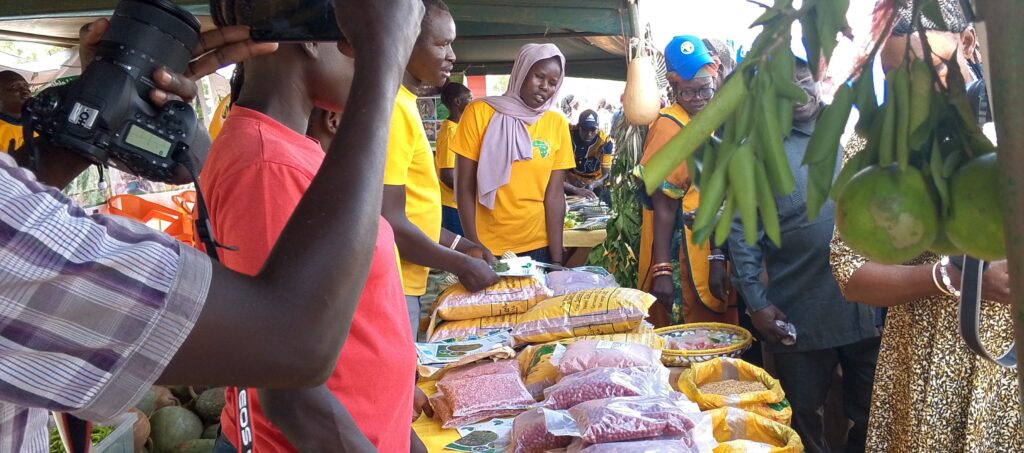The Deputy Governor of Eastern Equatoria State has called for greater support for local farmers, urging that they need tractors, not just hoes, to boost food production and increase exports.
This statement was made at the annual Agricultural Show held in Torit, under the theme: “Our Local Food, Our Health, and Our Life.”
The three-day event, which concluded on Saturday, served as a key platform for producers, processors, consumers, and manufacturers from across the state to exchange knowledge, experiences, and skills.
Mary Alphonse Lodira, the Deputy Governor, criticized the reliance on hoes, describing them as a barrier to increasing agricultural output and meeting the growing demand for exports.
She called on the national government and international organizations to support farmers with tractors to enhance production and facilitate exports.
“Using hoes is like punishing our farmers. It limits our ability to produce enough food for export,” Lodira said. “Eastern Equatoria doesn’t need hoes; we need tractors to help our farmers and tackle hunger in the state. It’s time to move beyond the hoe and invest in machinery that will drive agricultural progress.”
Charles Onen Lokwaruk, Chairperson of the Eastern Equatoria State Civil Society Network, addressed the challenges posed by inadequate infrastructure, particularly poor roads and limited market access, which he said hinder the export of agricultural products.
He urged both the state and national governments to prioritize the development of local markets to strengthen supply chains.
“If we produce but lack markets, it will be disastrous for us,” Lokwaruk warned. “We need better roads to connect us to markets, and local markets need to be established. Transporting goods only to Juba and back to Torit isn’t enough; local markets will stimulate growth and stability.”
Dr. Anna Itwari, Director General of the Ministry of Agriculture in Eastern Equatoria, emphasized the importance of local food production in addressing food insecurity in the state. She highlighted that locally grown produce is not only nutritious but can also contribute to improving the overall standard of living.
“We must focus on local food production to ensure food security and raise the quality of life,” Dr. Itwari explained. “Local food is accessible, nutritious, and marketable. Farmers should offer fair prices to make these foods more affordable for the community.”
Victor Onenchan, Head of the Food and Agriculture Organization (FAO) in Eastern Equatoria, called for increased investment from international partners in supporting local farmers. He stressed that agriculture is not only a vital economic activity but also a crucial source of income, employment, and trade.
“Agriculture is more than just a practice—it’s an economic opportunity,” Onenchan said. “Local food production has the potential to generate income, create jobs, and stimulate trade. By supporting farmers, investing in agro-processing, and strengthening market linkages, we can transform agriculture into a pathway to prosperity. Farmers’ cooperatives and village savings and loan associations here are great examples of how collaboration can generate wealth and improve livelihoods.”




